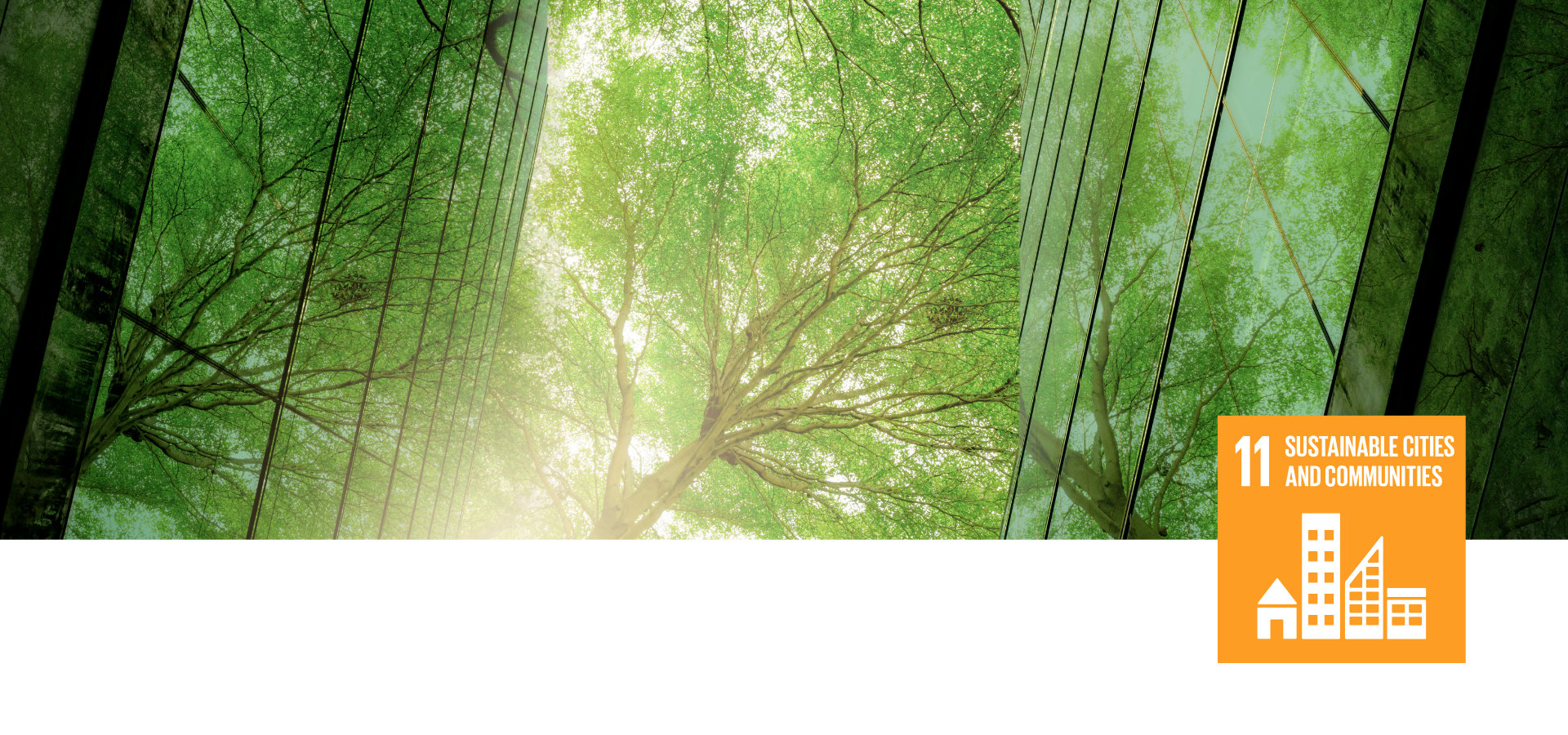
SDG 11: Sustainable cities and communities
HKUST recognizes the urgent need to create sustainable cities and communities that are inclusive, resilient, and environmentally conscious. By adopting a Net-Zero Carbon Investment Strategy and partnering with experts to study and develop strategies for environmental solutions, HKUST demonstrates its commitment to creating a sustainable community for all. HKUST also strives to foster artistic awareness and cultural appreciation within the campus community by supporting arts and cultural activities in our campus and engaging in community conservation initiatives that safeguard traditions and heritage sites. The campus itself is also designed to be accessible and pedestrian-friendly, contributing to the creation of vibrant and liveable urban environments that harmonize economic growth, social development, and environmental stewardship.
Curriculum
51 related courses were offered in the 2023-24 academic year.
Research
According to Science Direct, from 2020 to 2024, HKUST published 924 research papers addressing SDG 11.
23.27% of them are in the top 10% cite score and 74.8% are internationally co-authored.
Research Highlights
Digital Twin-empowered Landslide Emergency Risk Management
Amid the increasing frequency and intensity of extreme rainstorms under climate change and the enduring landslide activities triggered by strong earthquakes, new landslide emergency risk management theories and technologies are urgently needed to ensure public safety and sustainable development. To address the pressing issue, Prof. Zhang Limin’s project is set to (1) develop a digital twin of Hong Kong for sensing, simulating, and visualizing landslide hazard processes and for coordinating societal responses, and (2) create a new paradigm for managing hazard emergency risks in the digital era.
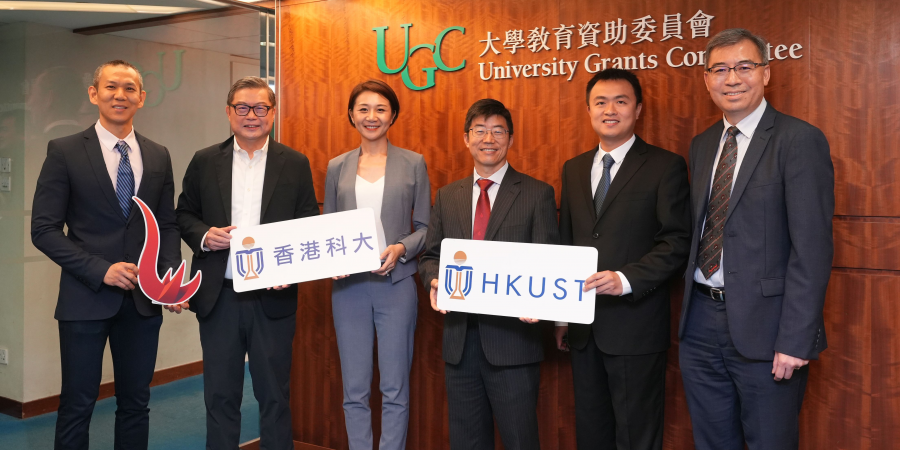
Publication
HKUST is actively conducting research striving for a sustainable city.
In the publication of " Roadside measurement of N2O and CH4 emissions from vehicles in Hong Kong ", researchers from HKUST explore new methods to characterize gas emissions from on-road vehicles using roadside monitoring and machine learning.
Additional highlights for HKUST research effort on poverty related topics are " Deteriorating Work and Commuting Patterns in Beijing: a Time-diary Cluster Analysis from 2001 to 2021 " and " Large deformation simulation of uprooting of trees with complex root system architectures using material point method with embedded truss elements " showcasing the HKUST commitments.
Policy
HKUST Net-Zero Building Standard
HKUST is committed to improving the energy efficiency of its new buildings as well as renovation projects through the implementation of newly updated HKUST Net-Zero Building Standards. The requirements outlined include anticipating future energy needs, maximizing metering and monitoring capabilities while keeping a flexible design to accommodate for future new sustainable technologies.

Affordable Housing for Students
Undergraduate and Postgraduate students can apply for affordable residential halls all throughout Fall, Winter, Spring and Summer semesters.
HKUST provides housing subsidies to its student residents to ensure that the University constantly offers prices below market rates, with financial aid is available to students in need. The University provides accommodations to students at rates as low as 12.5% of the rates offered by outside landlords.
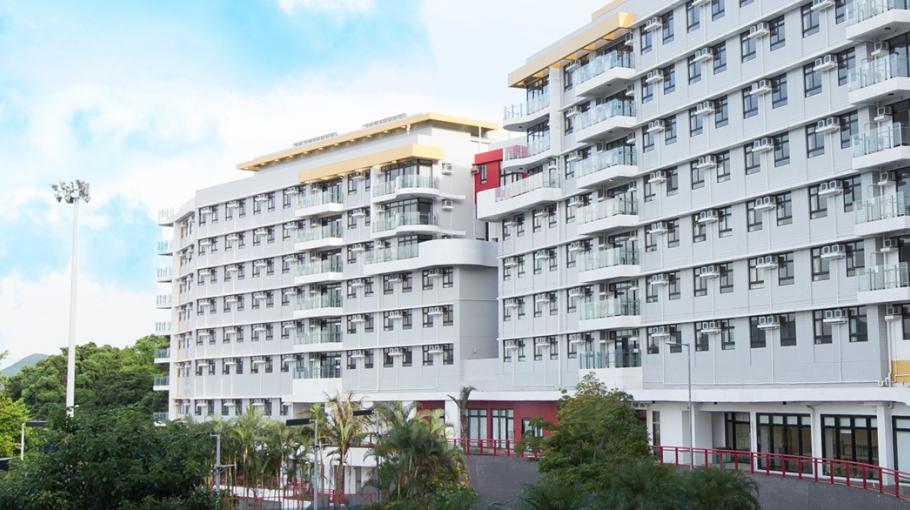
Housing Offered to Undergraduate Students in HKUST
Collaboration
UNESCO Conference, “Cultural Heritage and Peace: Building on 70 years of the Hague Convention”
HKUST Vice-President for Institutional Advancement, Prof. WANG Yang, participated as a panel speaker in the UNESCO Conference, contributing to the session titled “New Technologies and the Protection of Cultural Property”. During the session, Prof. Wang introduced potential utilization of cutting-edge technologies such as blockchain, satellite remote-sensing, and drone applications to enhance the protection and monitoring of cultural heritage. Additionally, HKUST was invited to present our groundbreaking research and discoveries in the “Tech & Act: Future Solutions” Zone where attendees were able to engage directly with our experts on future collaborations as well.
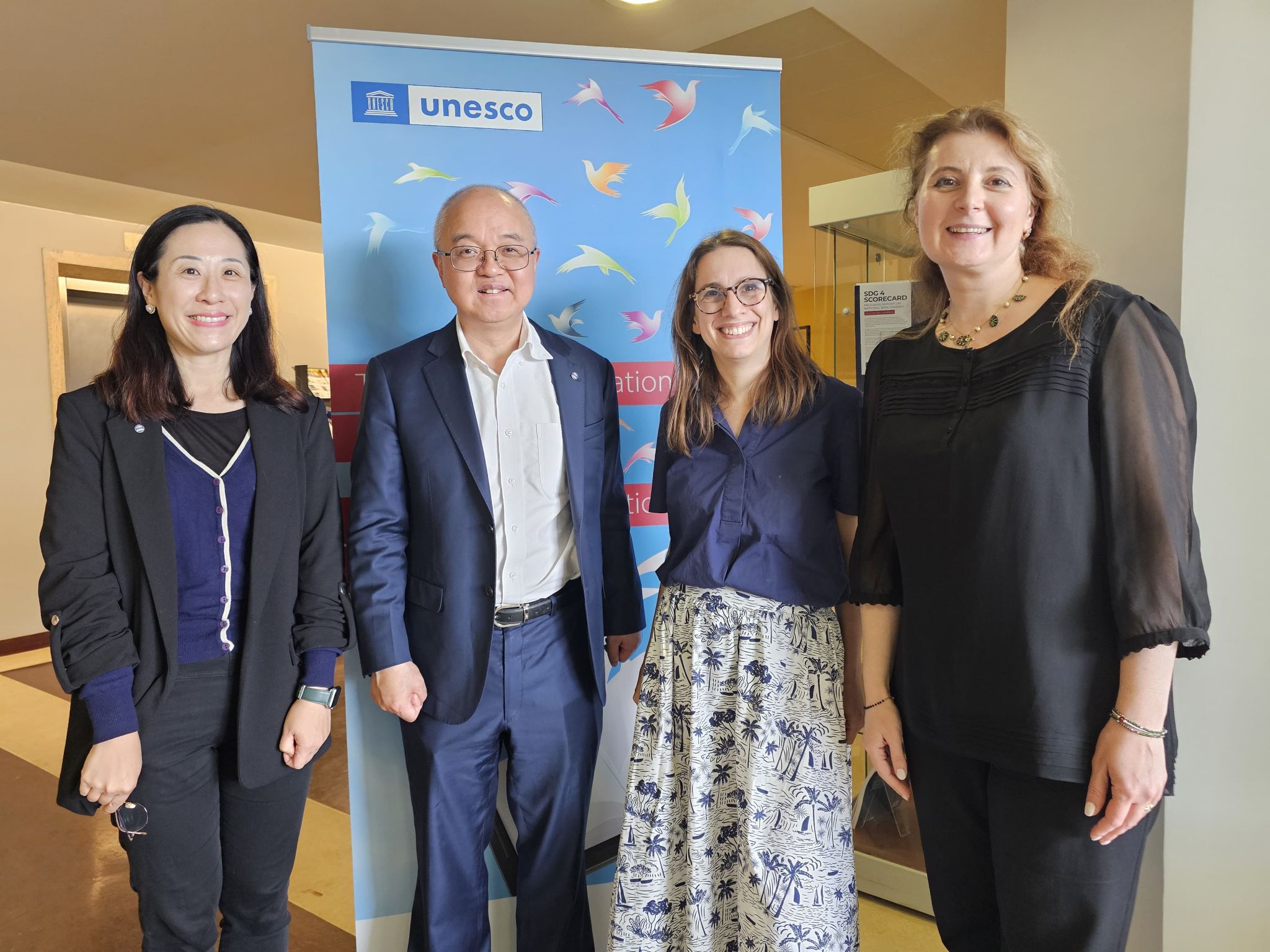
HKUST Vice-President for Institutional Advancement Prof. WANG Yang (second right) attends the UNESCO Conference "Cultural Heritage and Peace: Building on 70 years of the Hague Convention” in The Hague.
Supporting the Development of Lantau Island
HKUST Dean of Engineering, Prof. LO Hong Kam , was given the honour to serve as the Fourth Term member of the Lantau Development Advisory Committee. In this pivotal role, Prof. Hong K. Lo is to give strategic advice for the Government, through the Secretary for Development, on initiatives and proposals in alignment to realising the sustainable development and conservation of Lantau from a holistic perspective while also capitalizing the unique strategic advantages of Lantau for meeting the long-term social, housing and economic development needs of Hong Kong. Through this collaboration, HKUST strengthens its active engagement in Hong Kong’s city sustainable urban development goals.
Joint University Docent Training and Heritage Services Program in Yim Tin Tsai Village, Sai Kung
Yim Tin Tsai (鹽田梓) Village, a historic Hakka settlement on a small island near Sai Kung, is one of Hong Kong’s earliest Catholic mission sites. This joint university docent training program offers students training as docents and heritage facilitators, fostering community engagement and experiential learning. It is co-organized by leading academic institutions: City University of Hong Kong, Hong Kong Baptist University, Hong Kong Shue Yan University, Lingnan University, the Chinese University of Hong Kong, the Education University of Hong Kong, and the Hong Kong University of Science and Technology (South China Research Center). This collaborative effort highlights the role of education and cross-institutional partnerships in safeguarding cultural heritage and promoting inclusive, sustainable communities.
Community Engagement
HKUSTours Invite Public to Explore Scenic Campus and Surrounding Neighborhood
Led by passionate guides from diverse backgrounds, including staff, faculty, and alumni, these tours unveil hidden gems on campus and in the Hang Hau community. Participants explore scenic hillside and waterfront complex overlooking the Clear Water Bay peninsula and learn to appreciate the natures and importance of preserving the environmental and biodiversity resources around us.
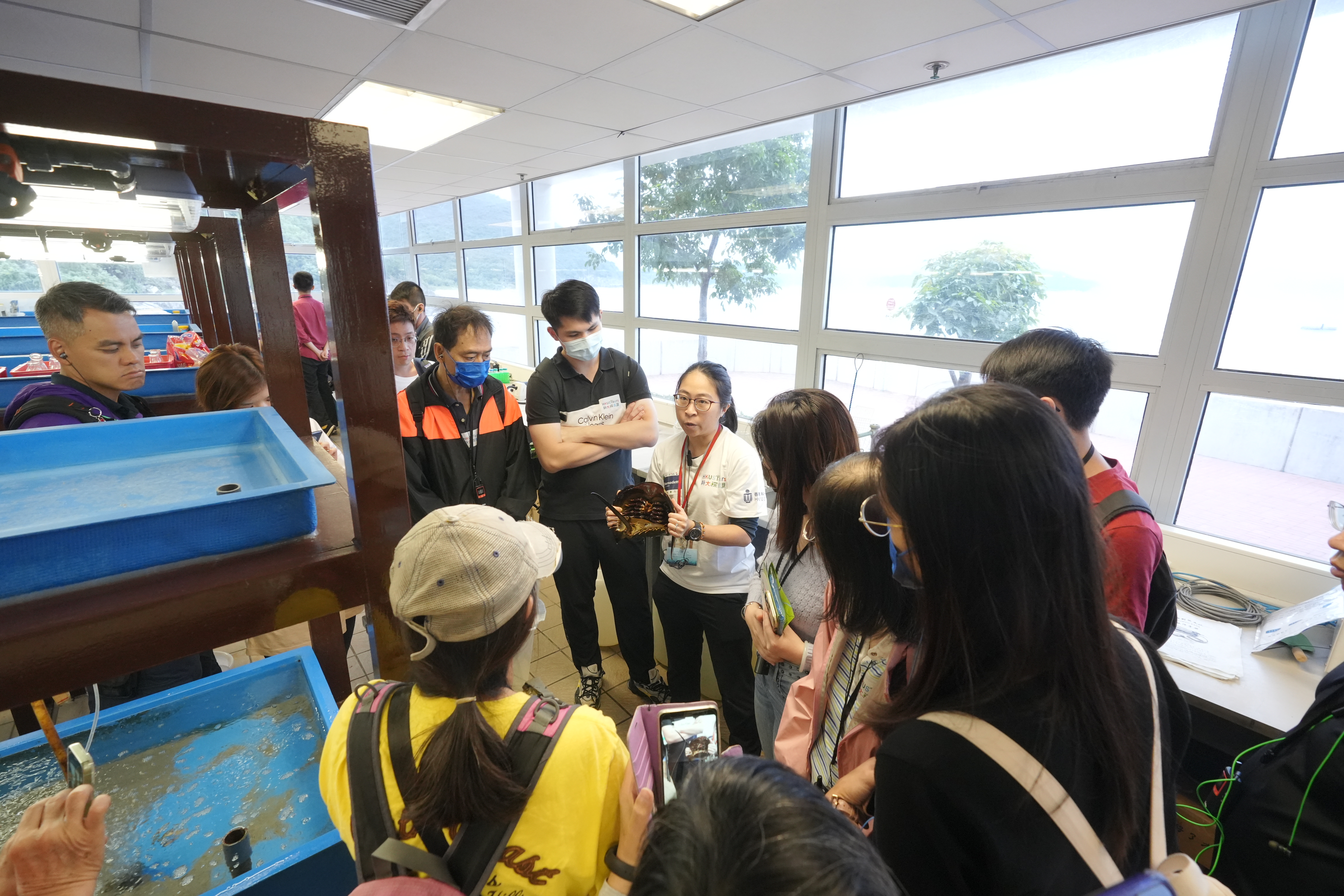
HKUST 'Kaifongs’: Building Social Bonds in the Vicinity
An HKUST alumnus, the founder of social enterprise Kaifong Tour, partners with the university to strengthen inclusive, sustainable urban development through the HKUSTours initiative. By training local guides to share community narratives, this collaboration preserves intangible cultural heritage while fostering social cohesion. The program demonstrates how academic-community partnerships can build more resilient cities by empowering residents as custodians of local identity and creating platforms for meaningful placemaking.

Luke TAM and his social enterprise, Kaifong Tour, strive to foster meaningful connections among 'Kaifong' and communities through a unique blend of sightseeing and storytelling.
Tai O Fieldtrip – Tai O Local Community
Situating at the Pearl River Delta estuary with its unique geographical and ecological environment, Tai O was a significant port for fishing, salt-making, agricultural and commercial activities. Various ethnic groups intermingled, and a local ritual system was formed. This field trip organized by the South China Research Center of HKUST in collaboration with the Joint Associations of Traditional Dragon-Boats in Tai O, opens the opportunity for participants to gain first-hand experience with the Tai O community and understand the transmission of ICH within the local society.
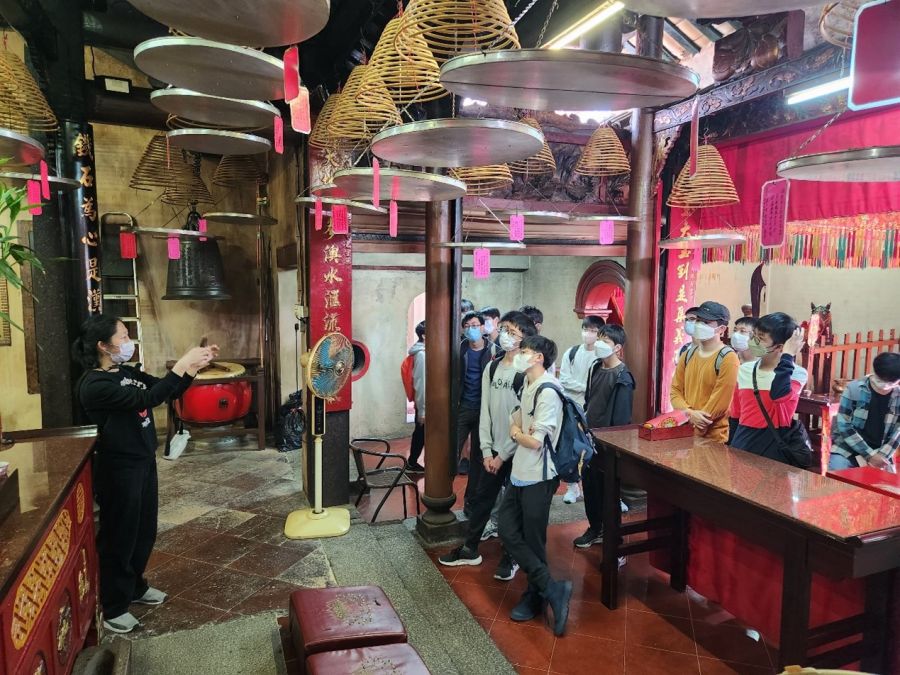
Tai O Dragon Boat Water Parade 2024 – Talk & Observation Activity
The Tai O dragon boat water parade is a traditional activity unique to the Hong Kong community. During the Dragon Boat Festival, the three fishermen’s associations in Tai O, organise the dragon boat water parade. The associations’ dragon boats tow sacred sampans carrying deity statuettes in a parade through Tai O waters to invoke blessings for well-being and peace. This talk, co-organized by the South China Research Center of HKUST, introduced the historical, social and cultural significance of this national intangible cultural heritage (ICH) and elaborate on the significance of ICH transmission through this case study.
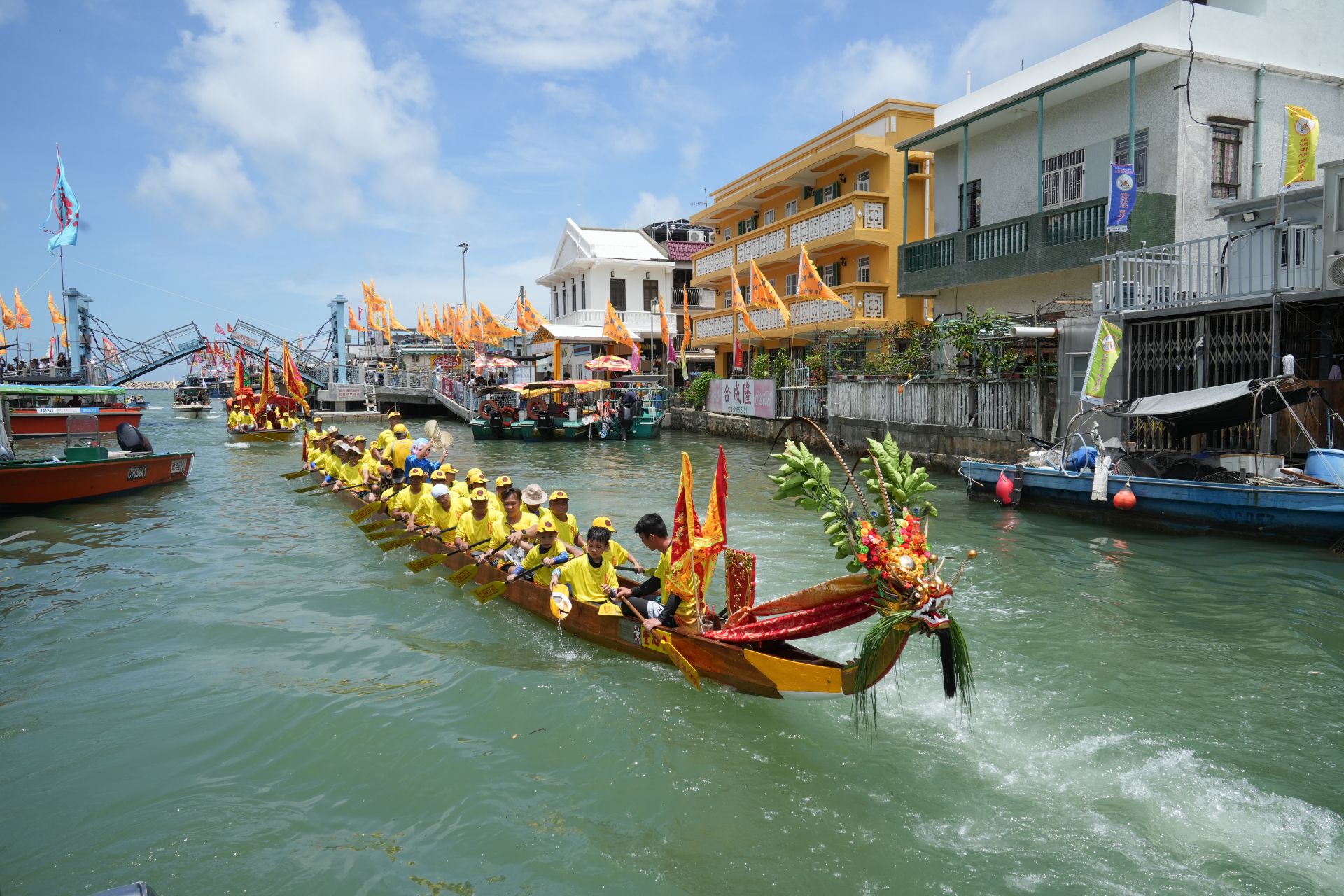
Tai O Dragon Boat Water Parade – Paddling Workshop and Fieldtrip
The Tai O Dragon Boat Water Parade paddling workshop and field trip introduced the historical, social and cultural significance of the parade as a national intangible cultural heritage (ICH) and elaborate on the significance of ICH transmission through this case study. Additionally, participants were given the opportunity to experience paddling traditional dragon boat in the waterways.
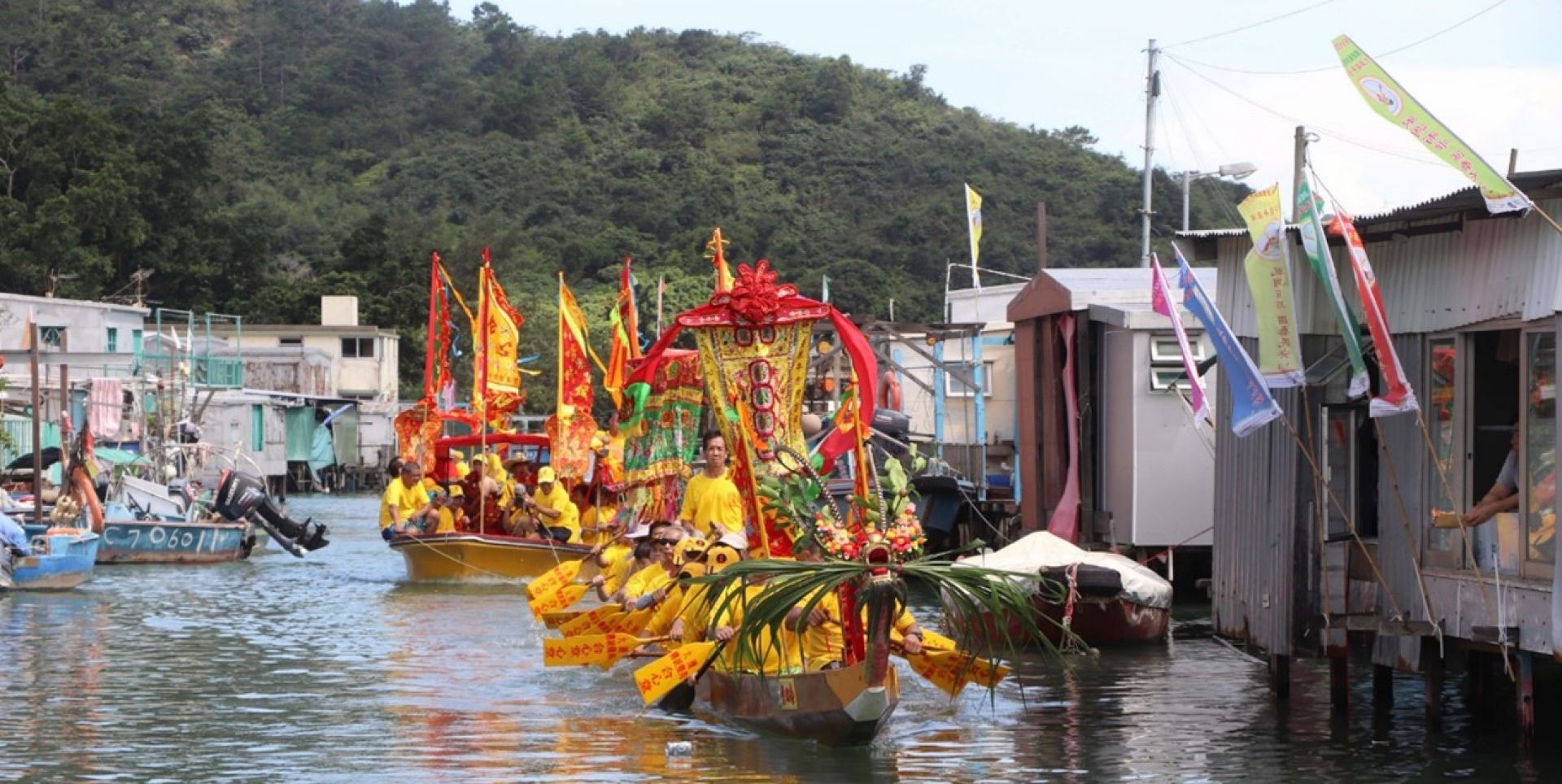
Art Gallery
The Ping Yuan and Kinmay W Tang Gallery at HKUST Library hosts vibrant exhibitions open to all campus visitors, showcasing artistic diversity and cultural heritage. Recent highlights include Spotlight: Walter R. Kent's Road to Hong Kong (May 4 – Sept 8, 2023), which explored Hong Kong’s history through Kent’s journey, and 地圖中國: 五百年的意象演化 (China in Maps: Five Centuries of Evolving Images), a fascinating display of cartographic evolution. The many fantastic event from the gallery showcases the beauty in diversity and the collective strength of the HKUST community.
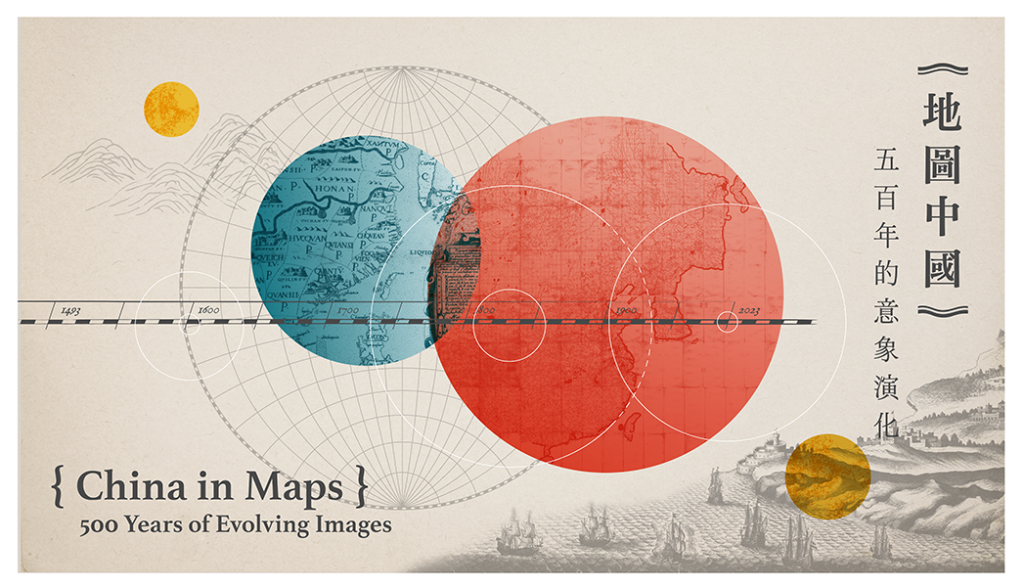
China in Maps: 500 Years of Evolving Images Jointly presented by the Hong Kong University of Science and Technology Lee Shau Kee Library, and Media Technology and Publishing Center
Networks of Poems and Books: Leveraging Network Analysis for Studying Premodern Chinese Poetry Anthologies
The Network of Poems and Book talk discussed how network analysis is utilized for studying premodern Chinese culture, enabling scholars to uncover, visualize, and investigate diverse new patterns. Drawing from a database containing over 7,000 poem entries from more than 20 late imperial poetry anthologies, this talk employs various algorithms and computing tools in network analysis, revealing novel insights into the networks of poems and books in late imperial China. This new technology innovation introduced a sustainable framework for studying and protecting intangible literary heritage.
5th Hang Hau ICH Day
In collaboration with Hang Hau Community, the South China Research Center organized Cantonese Opera to celebrate Tin Hau Festival in April or May annually. Hakka Unicorns dance along the Tin Hau’s deity image to parade in Hang Hau area to pacify the community. This Festival includes several Intangible Cultural Heritage (ICH), such as Cantonese Opera (List of Representatives of Human ICH), Hakka Unicorn Dance (National list of ICH), Tin Hau Festival and Bamboo Theater Building Technique.
Hang Hau Unicorn Dance Training Workshop
The Joint Association of Traditional Hakka Unicorn in Hang Hau and Sai Kung, funded by the Intangible Cultural Heritage (ICH) Funding Scheme and supported by South China Research Center, presents the Hang Hau Hakka Unicorn Dance Training Workshop, to foster preservation, transmission and promotion of the ICH item and local heritage.
Chinese Muslim Heritage Literacy: Meanings and Adaptations
The Chinese Muslim Heritage Literacy: Meanings and Adaptations seminar explored the connections between the literacies of religious practice, food heritage, and artistic expression within Sino-Muslim communities in Mainland China. The speaker, Ibrar Bhatt, illustrates how Sino-Muslim heritage is expressed, constructed, and remembered through intertwined spheres of social activity and concludes with a discussion of a new project in Hong Kong on how heritage literacy intersects with commercial conditions and population flows. This study supports policies that recognize minority cultures in urban planning, ensuring their continuity for future generations.
Campus Facilities
The South China Research Center
The South China Research Center, an institution under The Division of Humanities at HKUST has been actively organizing community engagement initiatives to preserve and promote Hong Kong's intangible cultural heritage, collaborating with various non-profit associations such as the Joint Association of Traditional Hakka Unicorn. In 2023, they continued this effort through a series of educational fieldtrips to various locations in the Sai Kung district including Hang Hau Intangible Cultural Heritage Day 2023 for their traditional Hakka Unicorn Dance, and appreciate the Fieldtrip: Hung Shing Festival Kau Sai. The Fan Lau Tin Hau Festival-field Trip held on June 2023 also served as an immense opportunity for students to appreciate traditional Cantonese Opera, flower-cannons and ritual of inviting Deities.
HKUST also demonstrates commitment to enriching local arts and heritage by promoting understanding and preservation of traditional practices through workshops such as the Zhengyi Ritual Tradition. The Center also held Unicorn Dance Training Workshop as well as Joint University Docent Training And Heritage Services Program in Yimtintsai Village to further facilitate students to reconnect with their cultural roots.
HKUST Center for the Arts
HKUST Center for the Arts (CFA) promotes the appreciation and participation in artistic and cultural activities through a range of programs, including exhibitions, concerts, film shows, seminars, workshops, and off-site visits. The CFA's mission is to integrate art and culture into the university, which is primarily focused on business and science, aiming to nurture students' artistic awareness and appreciation of the arts. In 2024, the CFA hosted HKUST Arts Festival 2024 to accentuate the multiculturalism of Hong Kong. With a mix of over 8 performances, talks and exhibitions, this festival spanned over two months and highlighted art and intangible heritage from Hong Kong, Beijing, and Berlin through their unique singing, dancing, costumes and instruments.
Public Library Access
HKUST commits to make buildings, natural landscapes including exhibition spaces and galleries in the complex completely accessible for public. Subsequently, despite the libraries being exclusively accessible by students, faculty and staff, non-university members can apply for temporary libraries access during Summer and Winter semesters.
Transport and Commuting
As a walkable campus, pedestrian walkways with safety railings are present next to every single wheeled-accessible road. Additionally, pedestrian crossings are marked and prioritized over wheeled vehicles. As a part of the ongoing Martin Ka Shing Lee Innovation Building Project, a bridge will be built to connect walkways on different campus buildings.
To encourage staff members to choose more environmentally-friendly commuting options, HKUST provides over 10 Shuttle Bus routes serving around 50 stop points across Hong Kong. Our goal is for over 90% of staff to utilize sustainable transportation alternatives, which not only reduces energy consumption but also minimizes greenhouse gas emissions and alleviates road congestion.